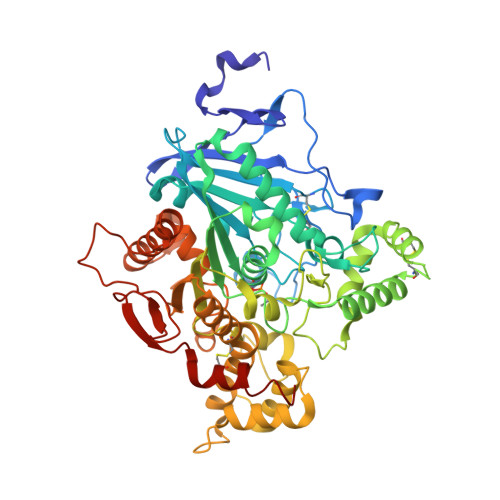Discovery of New Classes of Compounds that Reactivate Acetylcholinesterase Inhibited by Organophosphates.
Katz, F.S., Pecic, S., Tran, T.H., Trakht, I., Schneider, L., Zhu, Z., Ton-That, L., Luzac, M., Zlatanic, V., Damera, S., Macdonald, J., Landry, D.W., Tong, L., Stojanovic, M.N.(2015) Chembiochem 16: 2205-2215
- PubMed: 26350723
- DOI: https://doi.org/10.1002/cbic.201500348
- Primary Citation of Related Structures:
5DTI, 5DTJ, 5HCU - PubMed Abstract:
Acetylcholinesterase (AChE) that has been covalently inhibited by organophosphate compounds (OPCs), such as nerve agents and pesticides, has traditionally been reactivated by using nucleophilic oximes. There is, however, a clearly recognized need for new classes of compounds with the ability to reactivate inhibited AChE with improved in vivo efficacy. Here we describe our discovery of new functional groups--Mannich phenols and general bases--that are capable of reactivating OPC--inhibited AChE more efficiently than standard oximes and we describe the cooperative mechanism by which these functionalities are delivered to the active site. These discoveries, supported by preliminary in vivo results and crystallographic data, significantly broaden the available approaches for reactivation of AChE.
Organizational Affiliation:
Department of Medicine/Division of Experimental Therapeutics, Columbia University Medical Center, 630 W. 168th Street, New York, NY 10032 (USA).
















